It’s taking a long time for Argentina to accept the notion of virtual or contactless payments, not to mention chip and pin, in part because the banks have been very slow off the mark. But largely this is because cash is still king in a thriving black market economy which shows no sign of abating. Many are the times that I’ve filled up the tank only to find that either the card machine has broken, they only take debit cards, or they simply don’t accept any kind of payment other than cash or possibly goats. That last one is particularly true in the hinterland, so I always pack loads of cash, which in itself is a security concern, but that’s another matter.
Fortunately, Mercadolibre –South America’s version of Amazon– has an App where you can pay through their MercadoPago virtual wallet system by scanning a QR code with your phone (pictured) at businesses that subscribe to the service. On the whole, it works very well and it’s practically overtaken each and every bank (HSBC, Santander, etc) in terms of virtual payment methods. However, there are some establishments that haven’t quite grasped the concept of virtual and contactless payments in their true spirit. The whole idea of using your mobile phone or indeed a contactless card is that it’s very fast, you don’t need to sign anything, and the purchase is concluded in seconds. However, some insist on a form of digital signature (which is completely impossible to write with a finger and looks more like rune scribbles), in some cases, an identity card and in a lot of cases a system that’s partially functioning. Only the other day I filled up at a petrol station, scanned the QR code with my phone and the attendant insisted on writing down reference numbers that were shown on my screen, with a Biro on her scruffy little notepad which completely defeated the object. I’m a big fan of virtual payments since I consider it more secure than handing over a credit card, the details of which can easily be used fraudulently.
The above picture illustrates what can be seen on an all too frequent basis in Argentine businesses, which is a long-winded way of saying that credit cards are no longer accepted at this establishment. Or, we’d rather the tax authorities weren’t aware of all our cash transactions.
Chip And PIN
Chip and PIN isn’t exactly rocket science, simply requires a card with a special chip and for the user to remember their PIN, but this concept seems to be lost in Argentine commerce. (Hey, and if you think I’m ranting, I haven’t even started yet.) But anyway, chip and PIN is now standard practice in the UK, USA, and Europe, in practically any business selling goods or services, a process which simply involves inserting your card into a machine and then tapping in your PIN. Nothing needs to be signed, it’s quick, painless and efficient, you take your goods and get the hell out of there. Naturally, your bank has to issue a chip and PIN card in the first place and our bank won’t be doing that until next year for some inexplicable reason, so at the moment we have to go through the following insecure and nauseating process in many supermarkets:
- Hand over your card
- Hand over your identity card
- Is the purchase for personal or business use and/or what type of invoice/receipt do you need?
- Be informed by the cashier that there’s an offer from certain banks to pay in monthly credit payments (useful, yes, but I’ll get back to that)
- Wait an eternity for the dot matrix to print both your receipt and the credit card slip
- Watch as the cashier inspects your card including the all-important CVV number on the back, which she could easily memorise along with the card number
- Sign your name, print your name, write down your ID card number, then write down your phone number (which I always refuse to do), complete with the colour of socks you happened to put on that morning (I always fill that part in)
- Watch as the queue of customers behind you becomes more agitated and impatient at your apparent tardiness
We often joke that checking out in this country takes longer than the actual shopping, so quite why supermarkets and other merchants haven’t adopted chip and PIN more widely is a complete mystery to me, so I’m often tempted to simply sign Mickey Mouse, just for the hell of it.
A Complicated Tax System And High Bank Charges Are The Main Causes Of The Black Market
The tax system here is extremely complicated, added to which it’s a federal country with sales taxes between and within states (much like the USA), which is further burdened by sales tax retentions, which means that a percentage of a sale or bank deposit is retained by your bank and later tallied up in your annual tax return. In other words, money –your money!– is taken from you at the source. Added to this are the charges the merchant has to pay when customers pay with credit cards, which can be as much as 15% with VAT at 21% added to those charges. I’m not an accountant, but a quick calculation tells me that if you, the merchant, sell an item for say, $100, you’ll end up paying around 22% in bank charges and taxes. That doesn’t require a magician to see why so many transactions are done with cash, thus avoiding the punitive charges.
Pay With Your Phone And Virtual Wallets
As well as Apple Pay, there are other apps for paying with your phone:
- Android Pay and Google Wallet
- Samsung Pay
- Mercado Pago
- VALEpei
- TodoPago
- Rapipago
- Ualá
- PIM
- Yacaré
- Plus Pagos
Only a handful of Argentine banks have signed with the major players such as Apple Pay and Samsung Pay, but there are numerous virtual wallets springing up that allow you to top up via cash payments at kiosks (small shops) and other outlets– a very useful service for the millions of people that don’t have bank accounts, by the way.
In fact, I tried to sign up with a virtual wallet known as PIM (a government flagship App, apparently) as there was a special offer for bikers to have a motorway toll device tag fitted for free, provided we signed up with PIM, which in turn could be topped up through MercadoPago. However, the entire process was a nightmare right from the start and it went something like this…
I dial *456# on my phone, then type in my identity card number in order to be registered with PIM. I end up going around in circles because the same message keeps asking me to type in my details which I’ve already done countless times. After investigating this, I discovered that the service has been dogged by problems, not least the waste of AR$700 million on an App that doesn’t work and loads of people have their money locked up in the system. Strangely enough, they replied to my review on Google Play immediately, asking me to get in touch with them, but the short link was nothing more than a YouTube video on how to activate. Clearly, the reply was generated by a bot and is as useless as the App itself.
Eventually, they phoned me and a very helpful young lady ran me through the activation process (which I’d already done fifteen times) and eventually said that they were having ‘problems with the system‘– a catch-all for FUBAR. She then said they would investigate the case and we would try again. So I said that I had downloaded the Android App and she quickly said, “Oh, that doesn’t work.” I then said that I only wanted it for the toll card and that I would be topping it up with MercadoPago, at which she interjected with, “Oh, that doesn’t work either.”
Then I told her that I had heard about hundreds of other people telling me that the service hasn’t been working properly for about six months, at which she replied, “Yes, we are aware of that but it’s on a case by case basis.”, whatever the hell that means. What’s disappointing about this is that it was launched with huge fanfare, but somewhere along the line, humans screwed up.
Conclusion
I’m not suggesting for a minute that every virtual payment in existence is accepted in every outlet in other major economies in the US, Europe, and other more advanced countries, but one has to take into account vested interests and whether the terms are acceptable between the banks and the merchants. However, here in Argentina, as usual, it always ends up as a lottery, pot-luck or spin-the-wheel type situation, with the winner always being cash. Always cash.
And just to finish off, this morning I bought an expensive laptop on behalf of a client where the list price was shown as $1565 but the cash price was $1080, a staggering difference of over 30%, where clearly the merchant is being penalised by accepting credit payments, but at the same time some fancy footwork by the shop, hoping that an unsuspecting customer simply doesn’t have access to that sort of cash and is prepared to pay a dangerously inflated price, simply to pay with a card.
Naturally, we paid in cash.
—
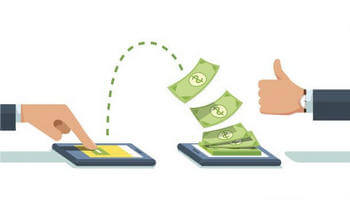
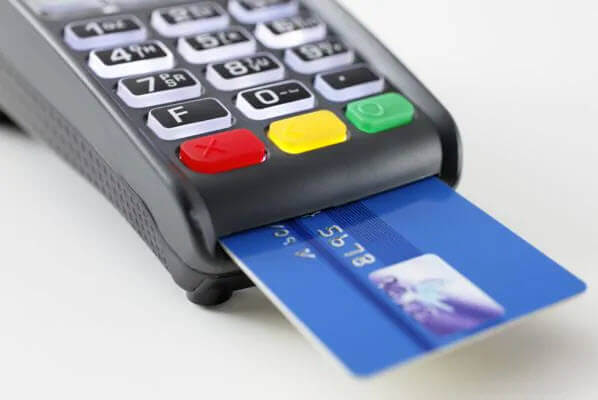

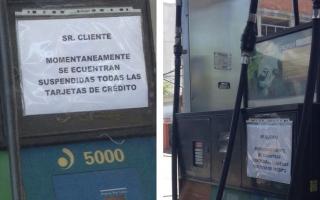

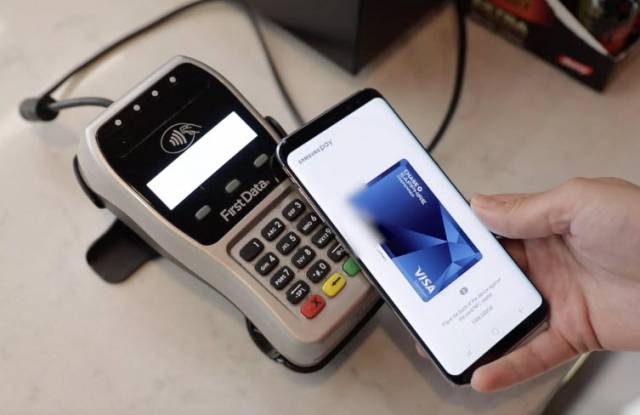
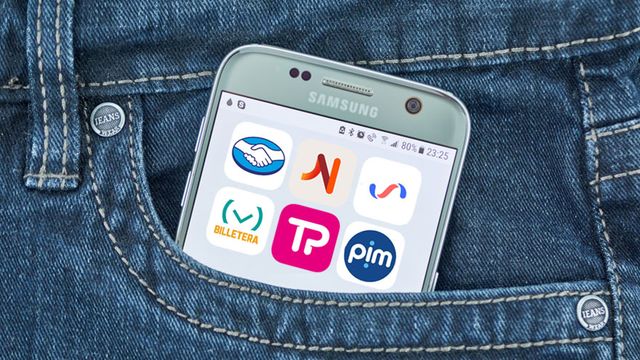
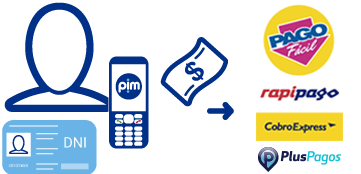
Really amazing!! On my visit to Argentine, I was asked that question about if I wanted single payment or multiple payments. I’d never heard of that before, so of course I did single payment. I don’t live there, so why would I want a merchant there still taking repetitive payments from my card long after I left the country?
But on the other issue, refusal of credit cards is not just an Argentine thing. In my country, banks are charging fees for anything their imagination would allow, and some business places no longer take any form of card payments because too much profit is lost in bank charges. Both my wife and I have had recent instances of first time dealing with a place which felt quite comfortable taking cheques from us if we didn’t have cash, but would definitely not take a card payment. Previously there was a movement away from cheques due to fraud.
Yes, it’s quite normal in Argentina to pay in instalments on your credit card and in many cases at 0% interest.
Quite how they achieve zero per cent is beyond me because the central bank interest base rate is over 65%.
But then this is Argentina and nobody has yet figured out the economy and its mystical behaviour.
There is one computer (chain) store (name withheld) here in Canada which informs you that paying with a credit card will increase your cost by the 3.5% they will have to pay the company. Cash or debit and you pay the exact cost of the item. With rewards being offered by credit card companies and it being more secure than a debit card, I find it easier and safer to use. The only flaw being every electronic transaction is tracking your spending habits, Mindblower!